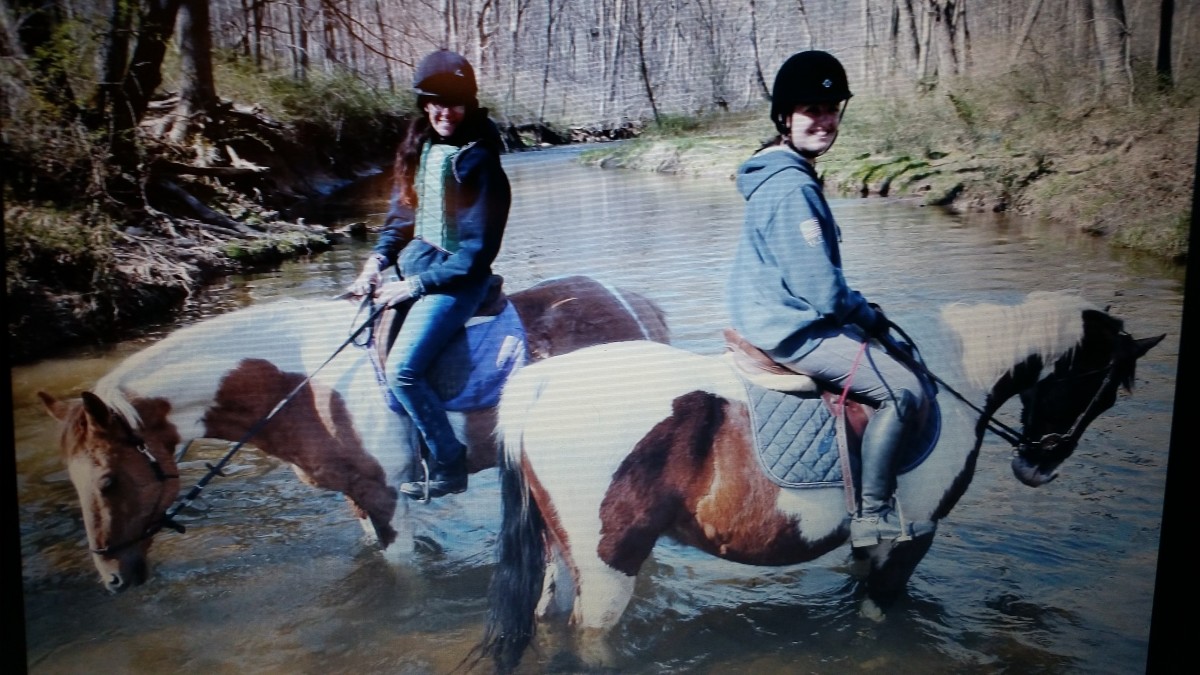This show horse is for lease. She was sold to us as a four year old GP, which she most certainly is not. She’s been out at two sales under saddle and while she advances very well under saddle, she is by no means “in the black” in terms of her training. We’ve been working with her for about three weeks now, and she’s actually starting to shape up quite nicely I think.
If you are looking to buy a show horse or have one for sale, then you’ve come to the right place. Our show horses for sale offer quality and affordability for aspiring competitive riders. You can place an ad to sell or purchase any of our horses directly on this site.

Show Horse For Lease
This is a large, muscular horse with a dark coat and shiny black mane. The horse is very well-behaved, and it has been trained to participate in horse shows, where it takes part in jumping events. It is also able to do dressage, which involves riding around in a circle while performing various movements with its body. This horse has competed at many shows and won many awards for its performance abilities.
The owner of this horse is looking for someone to lease it for the next few months. They are only available during the weekdays; weekends are not available due to family commitments.
I have a show horse for lease.
It’s a beautiful, young mare that has been trained and shown in the hunter ring. She has several blue ribbons to her name, including one from the esteemed Springtime Show at Waverly Farms.
She has been ridden by a variety of riders and has always been well-behaved. She will make a great addition to any barn or stable!
Show Horse For Lease
Leasing a horse means that you are paying a fee for additional riding time on the horse of your choice. Many horse owners lease their horses out to help with the expense of ownership. Sometimes owners don’t have enough time to ride and they want to keep their horse exercised regularly. This can be a great option for some riders and a better one than ownership. For some, leasing can be a stepping stone towards ownership.
Financial and Time Arrangements Can Vary
Each horse owner will have their own arrangements for leasing, both in terms of financial responsibility as well as the amount of time that the leaser will be able to ride the horse.
Partial Lease
Some horse owners lease their horses out for a set fee, and that allows the rider a certain number of days per week that they can ride the horse. This is the way I do it because my horses are used in lessons and can’t be committed to a lease rider every day of the week.
In these sorts of situations, like mine, the rider will pay a set fee for the lease and then have designated days of the week. In this case, there is no additional financial responsibility. You are just basically buying additional riding time on the horse for a fee, and there is no additional cost. I consider this a partial lease.
Full Lease
In a full lease situation, the horse is leased out and only the leaser will be riding it. This obviously would cost more money. In some cases, the cost of the full lease would just be the cost of the horse’s board. In other cases, it may also include the other financial responsibility, maybe with the vet or farrier bills.
Each horse owner will have their own expectations. That is the great thing about leasing—the two parties can work out an arrangement that benefits both of them.
Does the Horse Stay or Go?
Some full-lease situations will allow the horse to move to another facility. Others would have the horse stay where it is. Again, it is all dependent on the arrangements made between the two parties.
Also, while we are on the subject of moving horses, now is the time to mention that you should make sure to find out whether or not your lease permits you to take the horse off the premises for shows and other events.

Does the horse stay at the owner’s farm for boarding or can you move it somewhere else? Also can you take it off the property for trail riding or shows? These questions must be worked out.
Ellison Hartley
Make Sure Your Agreement Is in Writing
Even if you are leasing a familiar horse at your normal farm, it is important to have lease agreements in writing to avoid conflict. Make sure all the details are worked out and on paper so that both parties understand what is going to happen and what their responsibilities are.

Leasing arrangements can vary from owner to owner and farm to farm. I suggest written contracts just to make sure everyone is on the same page and know their responsibilities. This helps avoid conflict over small details!
Ellison Hartley
Lease Term Length Can Vary
Some people in partial lease situations lease the horse on a month-to-month basis and the lease rider makes monthly payments. In other cases, especially if the horse is being moved to a new barn, the lease may be for a whole year with payments due at the beginning of the lease. Again, this all varies between the two parties involved.
If you are leasing a horse to use for shows, you would most likely want to lease it for the whole year or lease it for a certain show season. All of these things, as well as what the payment plans will be, should be spelled out clearly in the written lease contract.